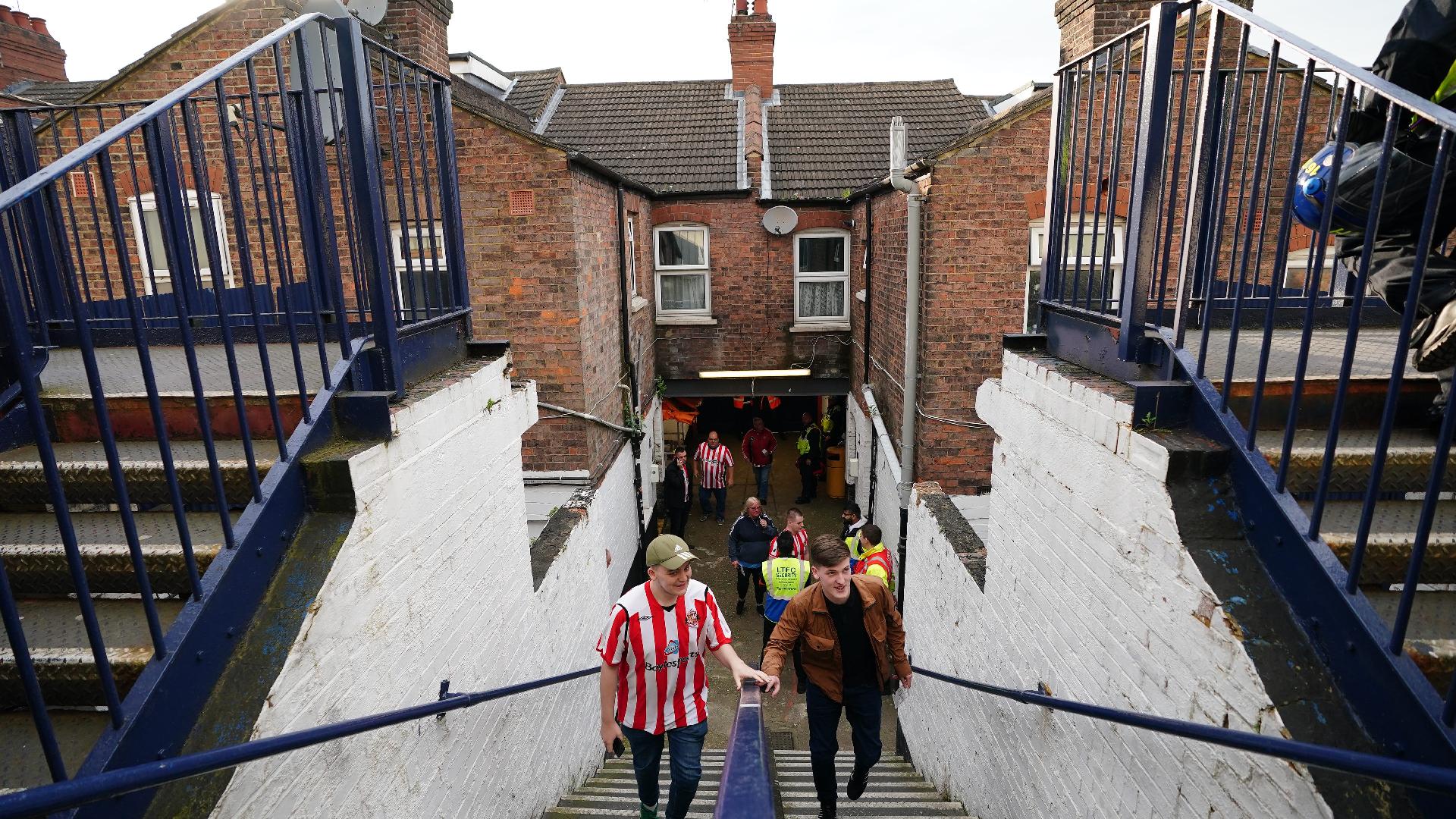
Luton are one game away from the Premier League after reaching the Championship play-off final with a 3-2 aggregate victory over Sunderland.
If the Hatters go on to clinch promotion at Wembley they will have the smallest stadium of any team to have played in the Premier League.
Here, we take closer look at their Kenilworth Road ground and what changes it will have to undergo to comply with Premier League requirements.
The stadium was built in 1905 and has a capacity of 10,356, meaning it would become the smallest ground in the top flight next season, behind Bournemouth’s Vitality Stadium, which holds 11,379.
The unusual entrance for away fans at the Oak Road End of the ground is on a row of terraced houses.
The stadium has not undergone any major developments since the conversion of the Kenilworth Stand in 2005 and would need significant improvements to its infrastructure should the Hatters win promotion.
Luton’s owners have admitted it would cost in the region of £10million to upgrade the stadium, with most of the Bobbers Stand having to be rebuilt to comply with requirements on media facilities and camera positioning.
The multi-million pound injection the club will receive if they go up will naturally soften that blow but it is the short turnaround between seasons that poses the biggest challenge.
Chief executive Gary Sweet said in a recent match programme: “If recruiting a new squad fit for top-tier football isn’t challenging enough, the rebuilding of the physical infrastructure in the shortest time imaginable is the hardest task on our hands should we be fortunate enough to get promoted.”
In 2015, Luton identified the Power Court site in the town centre as their preferred location for a new stadium but development has been in limbo, despite planning permission being granted in 2019.
Sweet announced in March that detailed designs for the Luton Town Stadium had been completed, with the ground set to hold an initial 17,500 spectators, an increase of roughly 7,000.
But the work is set to cost up to £100m, with the club likely to have to wait until the 2026-27 season at the earliest to move into their new home.








